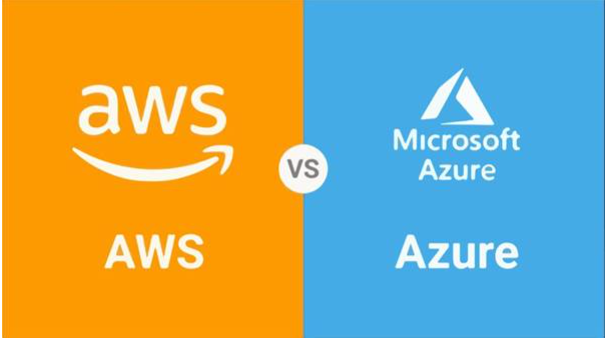Microsoft Azure vs AWS
In this highly digital landscape, businesses are increasingly depending on top cloud service providers to fuel their operations as cloud computing becomes a key component. When it comes to the cloud leaders, AWS and Microsoft Azure are very popular because they deliver a lot of services worldwide and strong tools. Both offer powerful cloud options, but there are some differences between them. For e.g., the way they charge, their target audience, available services and their suitability for the enterprise world.
Market Share and Adoption
Since its launch in 2006, AWS has led the cloud market and currently has the biggest market share. It is frequently used by startups and developers because it has a huge collection of services and is also extremely flexible. On the other hand, Microsoft Azure, which was introduced in 2010, has also seen quick growth among enterprises due to close ties with big companies and its compatibility with things like Windows Server and Office 365.
Services and Features
Both AWS and Azure provide many cloud services. For example, storage, networking, compute, databases, machine learning and analytics. Because of its larger set of services and variety of instance types, AWS seems a little better suited for flexibility. It keeps introducing innovative changes and new services much faster than its competitors.
Meanwhile, due to its better integration with Microsoft products, Azure is most suitable for organizations that already depend on them a lot. Because Azure Arc and Azure Stack are also capable, the hybrid and on-premises cloud services are preferred over what AWS has to offer.
Performance and Global Reach
Both AWS and Azure provide cloud services with data centers in many parts of the world. Currently, AWS is the leader in availability zones and regions as it gives users benefit from lower delays and more reliable systems. However, Azure is also close to AWS, and its growth accelerates rapidly, especially in locations where Microsoft is well known.
Security and Compliance
Both companies place special importance on keeping your data safe. They provide secure identity and access to customers, plus conform to important standards such as ISO, SOC, and GDPR. Azure offers an advantage to those who want there to be less hassle in managing their security by using tools from Microsoft such as Defender for Cloud and Sentinel.
Developer and Ecosystem Support
Both AWS and Azure are popular with developers and receive excellent support, but they appeal to different people. Both startups, open-source programmers, and DevOps teams prefer AWS since it gives great support to Linux, containers, and a variety of programming tools and languages. Also, documents and training resources such as AWS Training and Certification are widely considered as valuable.
On the other hand, Azure works perfectly for organizations whose teams use Microsoft-based development platforms. Since Azure blends well with strengths such as Visual Studio, GitHub (owned by Microsoft), and .NET, it is very easy for enterprise developers to use. Usually, developers who use Microsoft technologies are the ones most drawn to it.
Conclusion
To decide between Microsoft Azure and AWS, you should look at the current needs and setting of your organization. People who need a wide variety of new features may go with AWS, whereas those using Microsoft tools and preferring hybrid solutions are likely to prefer Azure. As both are known as top cloud providers, the best fit depends on a company’s particular cloud needs.

